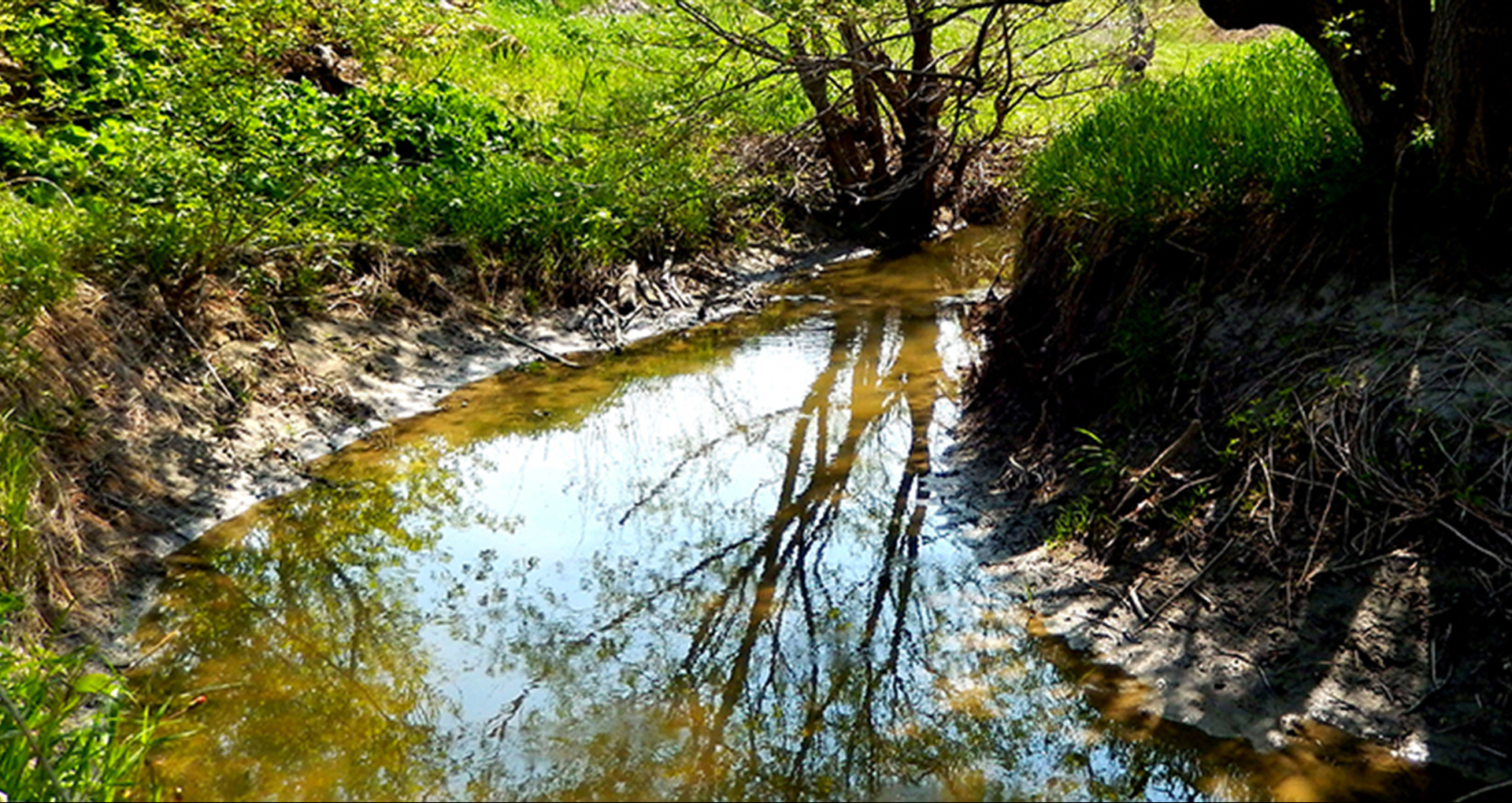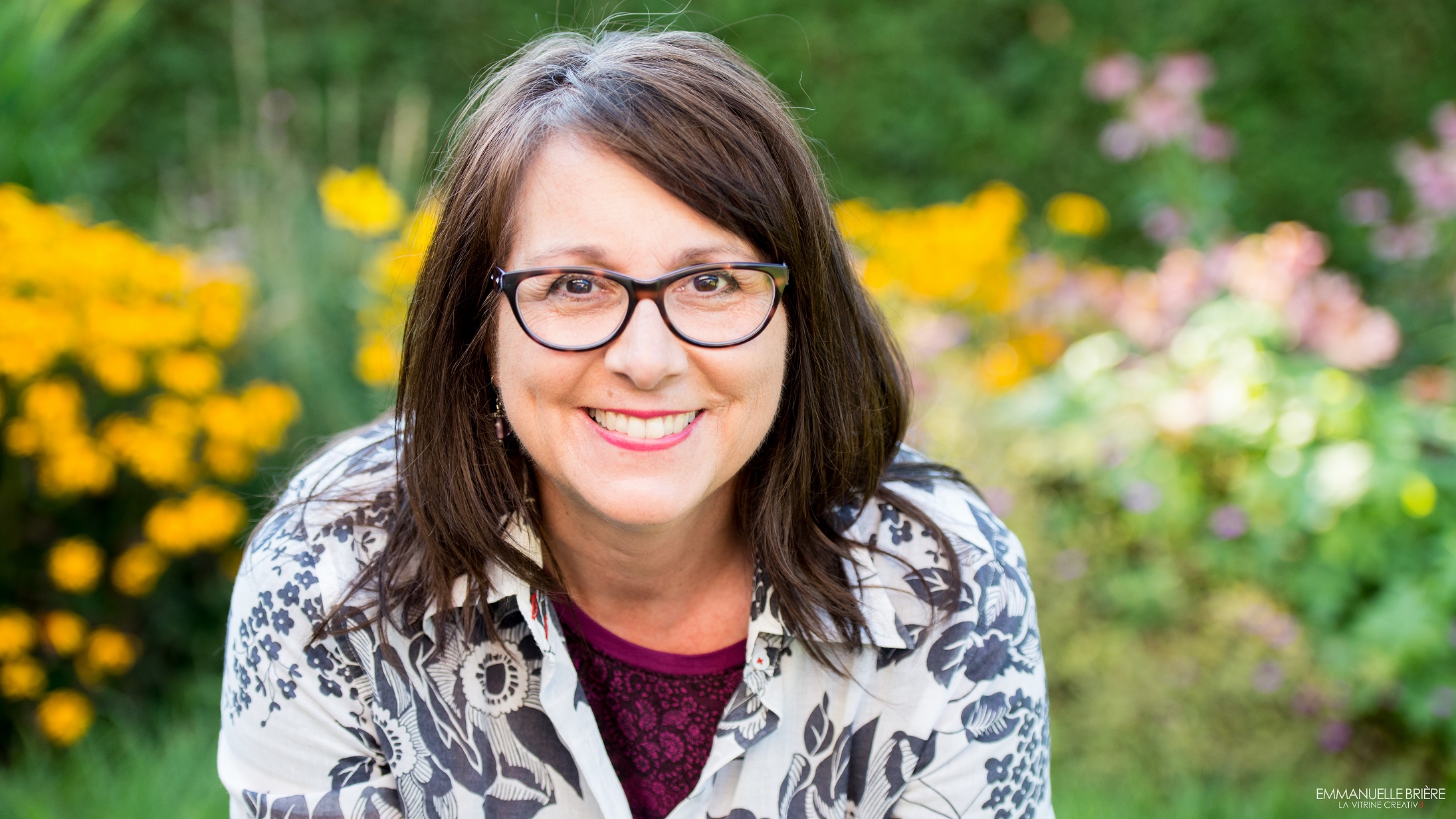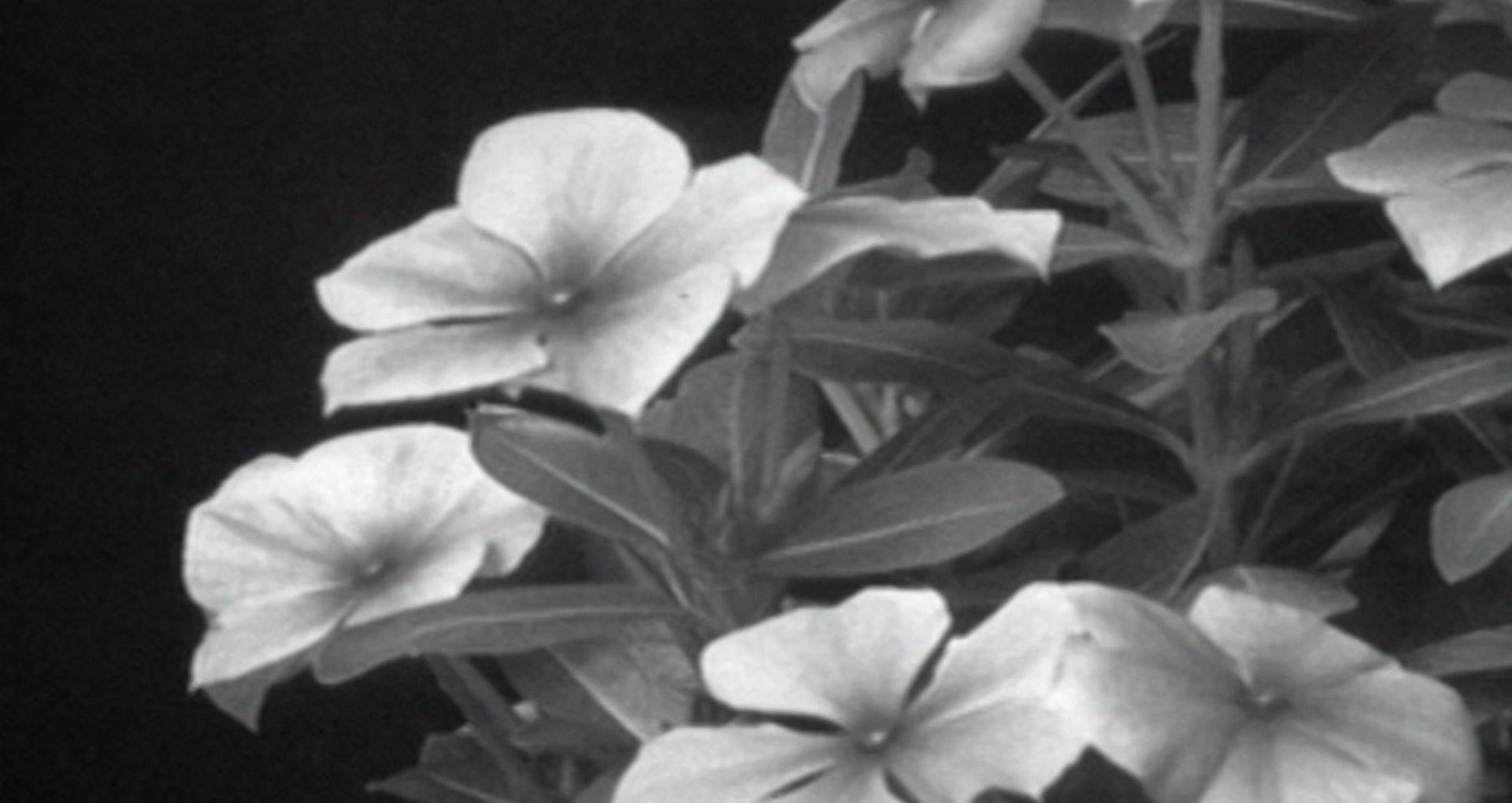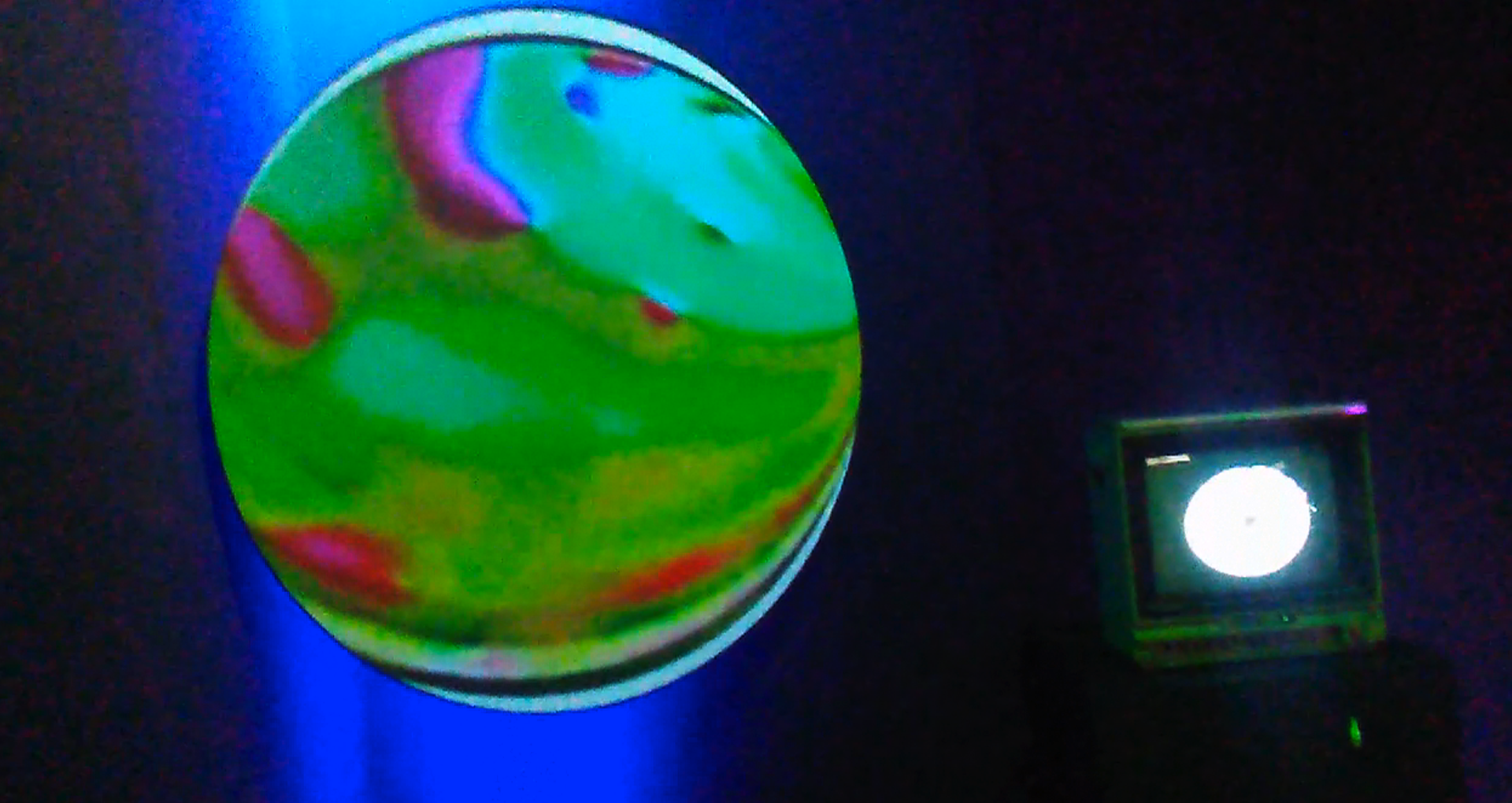
© Anne Ardouin, Ruisseaux, 2016
Ruisseaux
Anne Ardouin
Current project
Soutien à la création
Since the summer of 2015, Anne Ardouin has made streams and brooks the focus of her photography, drawing and video practice. She received a grant for research and creation from the Conseil des arts et des lettres du Québec (CALQ) and the resulting works were exhibited at the Maison de la culture Eulalie-Durocher, Saint-Antoine-sur-le-Richelieu, from 9 July to 28 August 2016. Streams and brooks evoke an alternative territory—one that is often hidden from view and unexpected. Though they can often be found not far from suburban houses or in the middle of large fields, they are silent spaces under the chaos of large trees, forming mysterious environments. While the wind blows, Ardouin watches the trees on the ‘banks’ of these tiny rivers, observing these peaceful spots where the world stays still: a moment outside of time. There is a romantic, as well as exploratory, aspect to the artist’s research, as she observes the light, the climate, the snow, the autumn, and the plant life, all of which provide a precious backdrop for the stream or brook. The images and sounds in the video work Ruisseaux were mainly recorded in the springtime. This research-creation is still in progress and the exhibition will include new works when it is shown elsewhere.

Anne Ardouin
Anne Ardouin, artist, researcher, and project director, has both a Bachelor’s and a Master’s degree in visual arts, as well as a PhD in planning, for which she specialized in cultural perspectives on landscapes and territories. In her practice, she develops tools for reflection using cross-disciplinary approaches of research-action or participative research and research-creation to investigate links between humans and their environments. She has made documentaries UNE RIVIÈRE IMAGINAIRE (TV5 Monde, Radio-Canada), AWACAK (APTN), and TCIKITANAW (awarded a prize at the Présence autochtone festival). Ardouin has many years’ experience directing cultural mediation projects in collaboration with schools and communities. Of particular interest to her are the links that adolescents maintain with their environments and, in particular, the relevance of landscape to the social values accorded to territory.
http://anneardouin.ca





